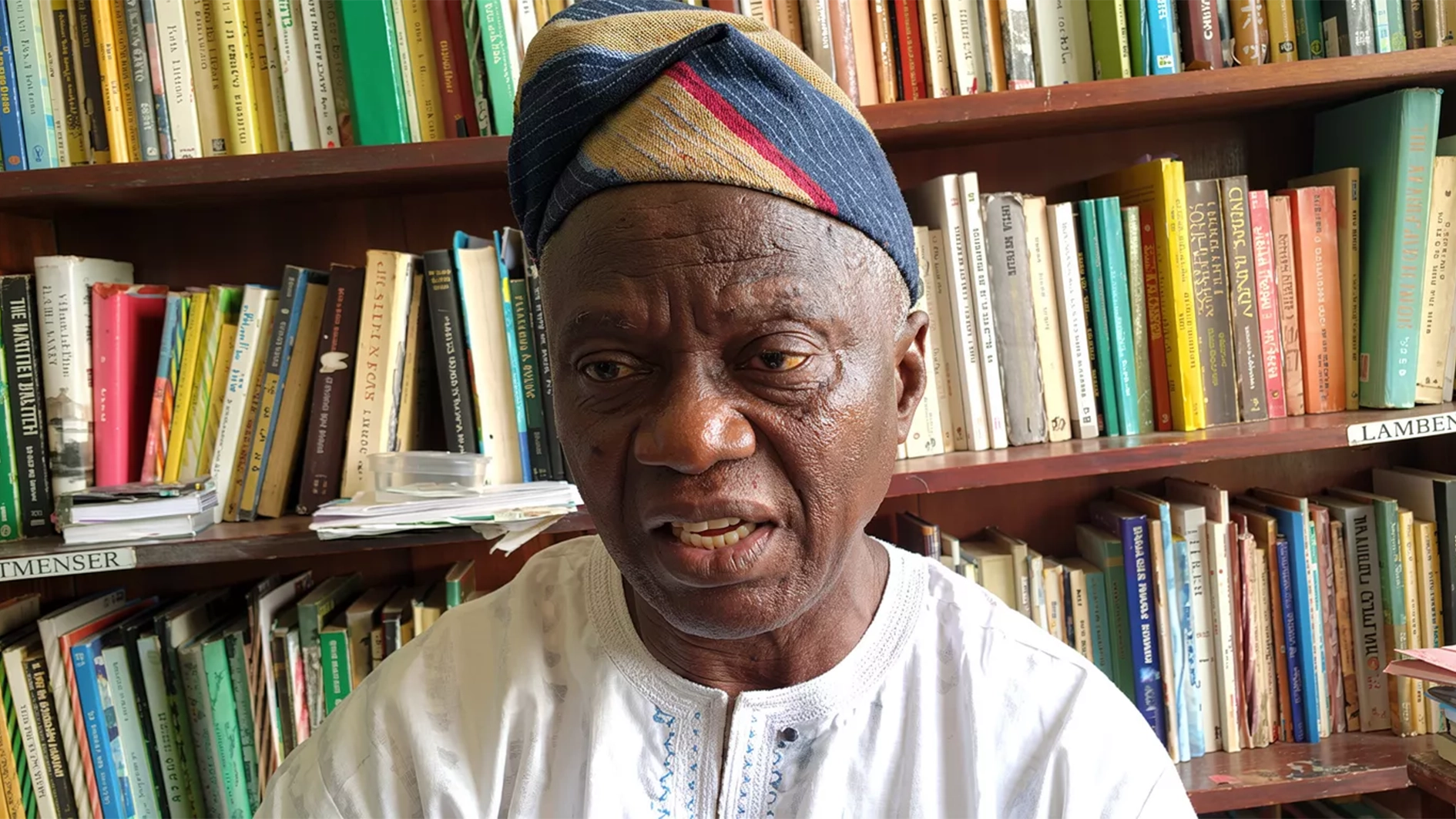 Obinna Nwodo is a Procurement and Supply Chain Management professional. A graduate of Marine Sciences from the University of Lagos, he obtained a Master’s degree in Procurement, Logistics and Supply Chain Management from the University of Salford Manchester. Obinna has leveraged his experience in supply chain management to found the Young Supply Chain Professional Community through which he is bridging the skill gap between the younger professionals and the senior professionals who started out as logisticians while also ensuring that the industry remains innovative as organisations move away from administrative purchasing to strategic procurement. In this interview with ONYEDIKA AGBEDO, he explores the supply chain management sector in the country, pointing out how current challenges can be addressed and the path to a rewarding future for the professionals and the country as well.
Obinna Nwodo is a Procurement and Supply Chain Management professional. A graduate of Marine Sciences from the University of Lagos, he obtained a Master’s degree in Procurement, Logistics and Supply Chain Management from the University of Salford Manchester. Obinna has leveraged his experience in supply chain management to found the Young Supply Chain Professional Community through which he is bridging the skill gap between the younger professionals and the senior professionals who started out as logisticians while also ensuring that the industry remains innovative as organisations move away from administrative purchasing to strategic procurement. In this interview with ONYEDIKA AGBEDO, he explores the supply chain management sector in the country, pointing out how current challenges can be addressed and the path to a rewarding future for the professionals and the country as well.
Briefly tell us about yourself?
I am a Procurement and Supply Chain Management professional. Although a lot of people call me expert, I like to use professional more often simply because I feel like I can still achieve much more in this industry. I am still quite young, you know.
I major in strategic procurement and inventory optimisation and have been privileged to serve in Nigeria and the United Kingdom (UK).
Talking about my educational background, I attended primary school in Lagos – Apata Memorial Primary School. Then I moved to King’s College for high school. Bachelor’s was from the University of Lagos and Masters degree was from the University of Salford Manchester. I have also completed certifications from the London Graduate School.
So far in my career, I have contributed cost savings in procurement through spend management. I have also built strategic procurement factions in two multinationals and developed supply chain risk management systems.
What inspired you to pursue a career in the supply chain management industry?
I have always wanted to do something challenging and value adding. I see supply chain as the heartbeat of commercial excellence globally. This was the major reason I started this journey and it has been rewarding with so many recognitions. I have also been able to make strategic contributions to people and the economy through the Young Supply Chain Professional Community and also with all organisations that I have worked for.
Your industry thrives on trust and relationship management. To what extent have you been able to leverage these two principles to nurture your community?
Ensuring win-win scenarios with suppliers is very important for any contract or business relationship. A procurement and supply chain professional should understand that this is the only position that breeds long-term partnerships and sustainable relationships. Trust will be built from the get go by ensuring the engagement of competent suppliers and partners during the selection process and then ensure good qualification due diligence end-to-end. That way, many risks would be managed from inception and exposure is kept in check.
The foreign exchange crisis has made Nigeria’s dynamic market even more complex. How have you been dealing with the attendant challenges to remain in business profitably?
The foreign exchange volatility is consistently presenting high uncertainty in the procurement of goods and services. Unfortunately, it has been really bad in the last three years. Personally, I have been able to stay profitable while closing requirements because I lean towards fixed contracts now. We throw in some forecasts to price considerations over the period that the contract is expected to last and then lock up the costs. This way the suppliers cannot come back for price reviews because we have already ensured that good buffers were factored in the cost analysis. We can then only go back on this in a situation where a force majuere is declared.
How has the deregulation of the downstream oil sector impacted your business especially in the area of logistics and how are you innovating to remain on top of your game?
You know when we talk about macroeconomic issues, a lot goes in. Logistics constraints are becoming an increasing worry because of the deregulation and also the condition of the roads for last mile logistics. We are keeping up through route mapping and optimisation of technological tools to support logistics requirements. Also, the deregulation of the downstream oil and gas sector has increased the pump prices and of course it has a direct effect on inflation and the prices of things. To cope with the logistics constraints, we need a mindset shift from seeing obstacles as roadblocks to viewing them as opportunities for creative problem solving. Through technological enhancement and tapping into the collective genius of a system, we can turn these issues into catalysts for innovation. Also, we should consider alternative means of logistics and delivery.
What is your assessment of the supply chain industry in the country overall? Where is it currently? What impact has it made so far and what could be done to make it more beneficial to businesses and the economy?
The supply chain industry in Nigeria is currently not where it should be. We still have so many gaps to close but there is hope. The industry has made so many contributions to the economy.
For example, talking about COVID-19 response and how we were able to deal with the pandemic is solely due to the effective deployment of cold chain logistics strategies, visible supply chains and stakeholder management. The government needs to foster more transparency and enable a system that makes demand, planning, replenishment, research, procurement, warehousing and distribution to thrive. Security also plays a vital role in the success of the supply chain. I am talking of both physical security and even cyber security even.
In what ways do you think players in the industry can leverage technology to enhance operations?
Technology is one of the best enablers in the supply chain industry. It is one of the things that I champion because I believe so much in it. Industry players should look into the deployment of state-of-the-art Enterprise Resource Planning (ERP) software and other productivity suites; and also, data analysis tools for decision making. We also need to consider Artificial Intelligence as an emerging tool in procurement and supply and I have also been in conversations about the prospects recently. So, I am certain that these tools would continue to be made available and are not necessarily expensive to deploy; so all players need to key in. A way to know which one works for your operations is to complete a checklist and requirement gathering and then match the modules of the options being considered to your requirement.
What specialised skills are required to play in the supply chain management sector?
A supply chain manager should be good in negotiation, cost analysis, inventory management and control, budget and monitoring, category management, data analysis, warehouse management systems, ERP proficiency, procurement and logistics management.
What advice do you have for someone looking to pursue a career in supply chain management?
No long talk. Come join us. It is very rewarding and many other people currently excelling in this field don’t have procurement, logistics or supply chain degrees. You can just do the professional certifications and you are good to go.
You are the founder of the Young Supply Chain Professionals; what informed the formation of this group?
I noticed that there was a skill gap between the younger professionals and the senior professionals who started out as logisticians. But recently, the industry took a more strategic approach and required more professionals and someone had to do something about it. Today, many organisations are moving from administrative purchasing to strategic procurement and the younger professionals had to champion this. We also saw that only four per cent of the higher institutions in Nigeria offered supply chain as a course in both undergraduate and postgraduate schools. So, I had to do something and I co-founded this awesome community of vibrant young professionals in supply chain management.
Talking about your community, where are you taking it to in the next five years?
The dream is to continue to nurture supply chain talent globally. So, in five years, we would have added value to many more countries in the world. The footprint will bring 100 per cent economic growth to everywhere that we will play. This way we will continue to ensure continuous improvement. The target is 100,000 members across 12 countries worldwide by 2030.
Finally, what does the future hold for the supply chain industry in Nigeria?
A lot of people laugh at me when I say that I am optimistic about the supply chain industry in Nigeria. I truly am and that is why I am crazy enough to want to make a mark.
I shall continue to sensitise the Presidency and various organisations regarding supply chain optimisation and its importance to economic growth and development. If we can get the supply chain industry to be more efficient in this country, then you will see that the system will work. It is honestly the first thing we need.
Afterwards, we can commence the introduction of sustainable practises in the supply chain to ensure longevity. But this happens one after the other.






